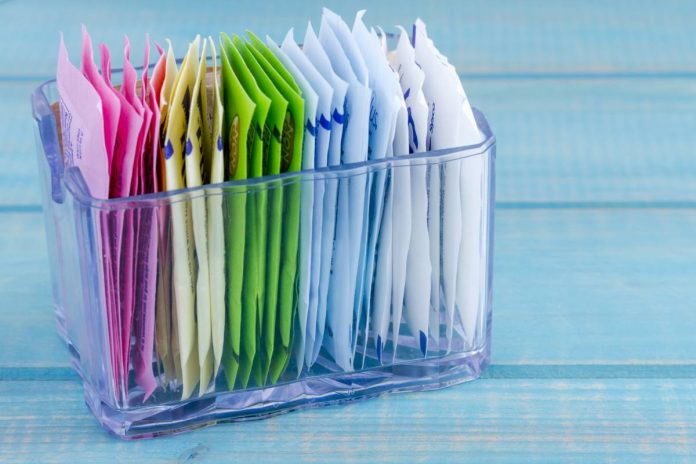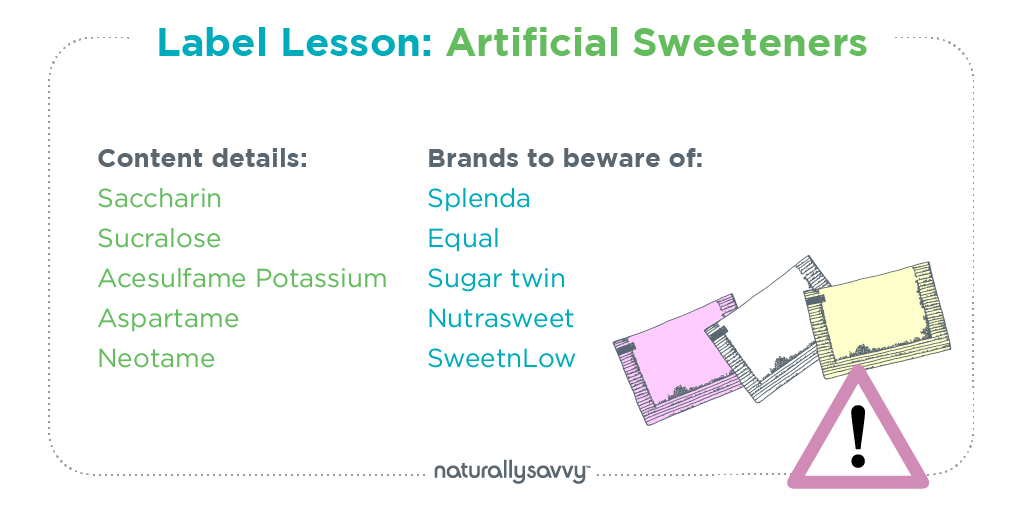
The food industry is using artificial sweeteners more and more in their products, ranging from soft drinks to salad dressings and candy to pickled beets. One reason is that people want more low-calorie foods; another is that artificial sweeteners are less expensive than real sugar and corn syrup.
The real expense associated with using artificial sweeteners may come in the guise of health problems. One reason people turn to foods and beverages that contain artificial sweeteners is to avoid excess calories. What they may be exposing themselves to in return, however, is real health dangers.
Artificial sweeteners and cardiovascular disease
A new study published in September 2022 involving more than 100,000 participants found a potential link between using artificial sweeteners and a greater risk of stroke and coronary heart disease. More specifically, people who consumed aspartame showed an increased risk of stroke, while those who used acesulfame potassium and sucralose showed an increased risk of coronary heart disease.
Read about 7 reasons artificial sweeteners are terrible for us
The authors looked at commonly used artificial sweeteners– aspartame (Equal, NutraSweet), acesulfame potassium (Sunett, Sweet One), and sucralose (Splenda), which are found in thousands of baked goods, soft drinks, snack bars, cereals, flavored yogurt, syrups, canned fruit, and more. They also evaluated cyclamates, saccharin, and a few other less common sweeteners.

Overall, the authors concluded that their “results indicate that these food additives…should not be considered a healthy and safe alternative to sugar.” Earlier studies have also found an association between artificially sweetened beverage use and cardiovascular events, including the Women’s Health Initiative, the Nurses’ Health Study, the Framingham Offspring cohort, and more.
Artificial sweeteners and diabetes
Can’t using artificial sweeteners instead of sugar help ward off diabetes? Insulin resistance and the development of type 2 diabetes is a serious health problem among men and women and is increasingly being seen in younger people. Could turning to artificial sweeteners help? According to a recent study, using sugar substitutes can change gut microbes and raise blood sugar levels.
Did you know that your tongue can’t distinguish between real sugar and artificial sweeteners? When you eat something that contains fake sugar, the pancreas still reacts by sending insulin into the bloodstream, just as if sugar were entering the body.
Over time, if this type of response continues, the pancreas may stop responding to these false alarms, even when you do eat sugar. The end result may be high blood sugar levels and the development of insulin resistance, prediabetes, and, ultimately, diabetes.
Read about 5 artificial sweeteners that are (probably) making you fat
Artificial sweeteners and weight loss
So you think you’ll lose those extra pounds if you use artificial sweeteners instead of sugar? Not so fast. In fact, they may promote the opposite result. In a review and meta-analysis that included data from more than 407,000 individuals and 37 trials and studies, the authors found that using artificial sweeteners resulted in an increased body mass index (BMI).
According to the study’s lead author, Mathilde Touvier, a research director at the French National Institute for Health and Medical Research, her research team defined a large amount of artificial sweetener to be about 77 milligrams daily, which translates to slightly less than two packets of sweetener.
Soft drinks headed the list of items consumed that contained artificial sweeteners, while slightly less than one-third were attributed to tabletop sweeteners. Less than 10 percent were associated with sweetened dairy food such as fruited yogurt.
What should you do about artificial sweeteners?
One word: avoid them, along with added sugars. The best alternative to these sweet things is naturally fresh and frozen fruits. To satisfy your sweet beverage desires, still or carbonated pure water with slices of fruit may do the trick.
Bottom line
Artificial sweeteners are in thousands of foods, and we are bombarded with messages about how they are a great alternative to sugar. However, more and more research shows us that they are detrimental and can contribute to our most serious health issues, including cardiovascular disease, diabetes, and obesity.










